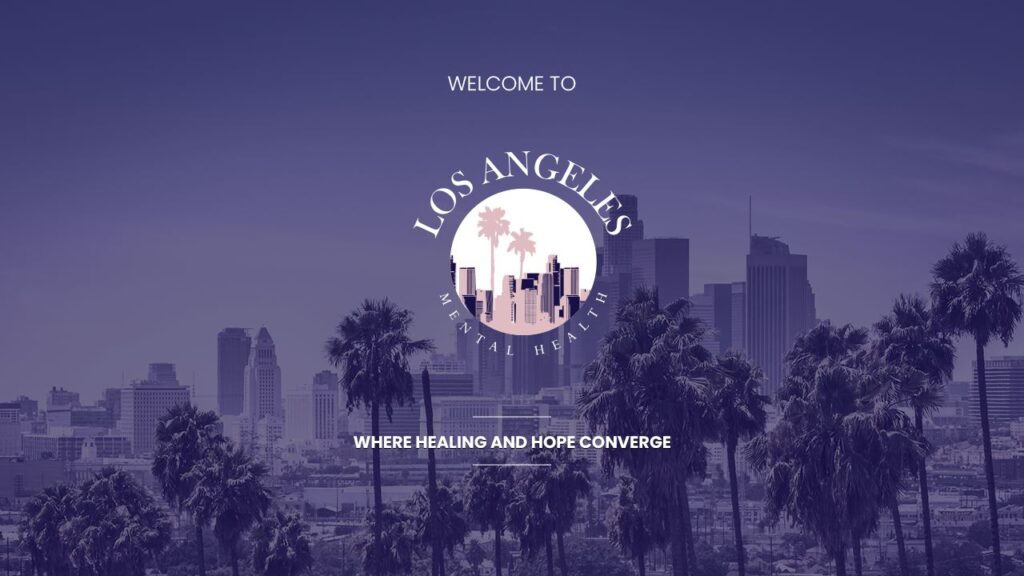



Sometimes it is difficult to prevent an eating disorder as well as spot it at early stages – a person may seem completely normal and even look better than ever. But after a while, problems become more evident – an individual in question is obsessed with diets, does not eat at all even when it is necessary for them to remain strong and active, and denies the problem when asked if there is an issue.
If you notice your relationship with food has become a problem for you or someone you know well can no longer control their eating habits, contact Los Angeles Mental Health (LAMH) – we can figure out how to combat eating disorders together.
Sometimes it is difficult to prevent an eating disorder as well as spot it at early stages – a person may seem completely normal and even look better than ever. But after a while, problems become more evident
– an individual in question is obsessed with diets, does not eat at all even when it is necessary for them to remain strong and active, and denies the problem when asked if there is an issue.
If you notice your relationship with food has become a problem for you or someone you know well can no longer control their eating habits, contact Los Angeles Mental Health (LAMH) – we can figure out how to combat eating disorders together.
We treat mind, body, and spirit with holistic, evidence-based care.
Our experts offer personalized care for lasting mental health recovery.

An eating disorder refers to a mental health condition characterized by unhealthy eating habits of the individual to the detriment of their mental wellness and physical fitness. Eating disorders differ from one another – anorexia means a person focuses on weight loss, bulimic people do everything to prevent weight gain, and individuals with binge eating disorder eat a lot of food quickly to the point of feeling unwell.
Eating disorders are caused by diverse factors including genetics, societal pressure, cultural norms, and mental health issues that affect the way individuals perceive themselves. An eating disorder may develop at any age, and people of all genders and backgrounds can struggle to eat well, eat enough, or get enough nutrients and vitamins to stay healthy in the long run. Eating disorder counseling will allow you to address the psychological and societal issues that triggered the development of this mental health condition and fully recover.
An eating disorder refers to a mental health condition characterized by unhealthy eating habits of the individual to the detriment of their mental wellness and physical fitness. Eating disorders differ from
one another – anorexia means a person focuses on weight loss, bulimic people do everything to prevent weight gain, and individuals with binge eating disorder eat a lot of food quickly to the point of feeling unwell.
Eating disorders are caused by diverse factors including genetics, societal pressure, cultural norms, and mental health issues that affect the way individuals perceive themselves. An eating disorder may develop at any age, and people of all genders and backgrounds can struggle to eat well, eat enough, or get enough nutrients and vitamins to stay healthy in the long run. Eating disorder counseling will allow you to address the psychological and societal issues that triggered the development of this mental health condition and fully recover.
Although eating disorders manifest differently for all people who struggle with disordered eating and it may be difficult to figure out if someone has anorexia or bulimia without being very close with the person in question, there are certain symptoms you can notice and come to a conclusion an individual requires eating disorder support:
Eating Too Little or Too Much
Self-Image Issues and Worries About Weight
Excessive Exercising
Self-Inflicted Isolation
Mood Fluctuations and Irritability
Gastrointestinal Issues
We will have to assess your physical and mental health to understand what treatment strategy would work best in your case. Here is a brief outline of the eating disorder treatment we offer at Los Angeles Mental Health:
The main methods we utilize to help depressed individuals
You have an opportunity to open up to a qualified therapist who is ready to listen to you without judgment - together you can address the causes of your eating disorder, find out what coping mechanisms you should implement to prevent the symptoms from bothering you in the future, and deal with other issues if you also require depression treatment or OCD treatment.

A psychiatrist will assess your mental and physical health to select the right prescription drugs. Typically, the medication for eating disorders targets anxiety and psychosis which allows mental health professionals to treat several mental health issues at the same time - for instance, you can recover from depression as you are learning to take care of your body with proper nutrition.

The involvement of family members in eating disorder recovery will significantly increase the chances of the patient to rebuild their life. Family therapy sessions will educate the relatives of the person and give them the confidence and motivation to move forward and remain healthy.

Since your eating disorder is most likely caused by a negative body image, this therapy modality will teach you how to accept yourself, be in charge of your emotions when you are particularly vulnerable, and cope with stress when you are under pressure by adhering to values and principles you deem to be important for yourself.

This is an integral part of eating disorder therapy - a patient needs to learn how to take care of their health with the help of proper diet, optimize their nutritional intake, and adopt healthy eating habits to feel good in the long run.

If your eating disorder is provoked by stress and anxiety, it makes sense to dedicate time to stress management techniques that will calm you down. You can do breathing exercises or meditate to become more self-aware and focus on the present moment instead of negative emotions that hinder your emotional growth.

Team Expertise
Our eating disorder specialists know how to work with patients from diverse backgrounds. Eating disorders require comprehensive knowledge and skills so that the patient is able to return to normal life as soon as possible, and our team is prepared to help you overcome obstacles that prevent you from being the best version of yourself.
Customized Treatment
Due to the different manifestations of eating disorders as well as factors that led to their development, it is essential to pick the right treatment strategy to help every single patient. We will map out an individualized treatment plan for you, take your needs and preferences into account, and adjust our treatment methods if it is ever necessary.
Safe Space
Many people are reluctant to undergo treatment for eating disorders – they are not certain whether the therapist they choose has the skills to address their problems or they are worried about their privacy due to the stigma related to eating disorders and mental health struggles in general. At our clinic you will be treated confidentially with the compassion and respect every patient deserves.
Holistic Approach
In order to help a person fully heal from an eating disorder, it is required to address all the aspects of their life – emotional and physical in particular – so that the recovery is sustainable and profound. Instead of eliminating one or two symptoms that bother you on a daily basis, we will take a look at every mental and physical health issue, deal with manifestations of related mental disorders, and ensure the bond between your body and mind is stronger as a result of your treatment.
Many eating disorder clinics are located too far from a potential patient’s home or workplace which makes them give up on their wishes to seek professional eating disorder help no matter how severe their symptoms are. The map below shows where Los Angeles Mental Health is situated – you can check out the local area, get directions to our center, tour our facility online, and make an informed decision regarding your future treatment.
Many eating disorder clinics are located too far from a potential patient’s home or workplace which makes them give up on their wishes to seek professional eating disorder help no matter how severe their symptoms are.
The map below shows where Los Angeles Mental Health is situated – you can check out the local area, get directions to our center, tour our facility online, and make an informed decision regarding your future treatment.
If you suspect your relationship with food has changed for the worse and your daily activities are disrupted by behavioral patterns related to food, you should consider eating disorder therapy. At Los Angeles Mental Health we offer high-quality eating disorder treatment to all individuals who seek our help – get in touch with us today and schedule your first appointment.
If you suspect your relationship with food has changed for the worse and your daily activities are disrupted by behavioral patterns related to food, you should consider eating disorder therapy. At Los
Angeles Mental Health we offer high-quality eating disorder treatment to all individuals who seek our help – get in touch with us today and schedule your first appointment.
We can help you with all types of eating disorders – the list includes but is not limited to anorexia nervosa, bulimia nervosa, binge eating disorder, and avoidant/restrictive food intake disorder. Since some people exhibit the symptoms of several eating disorders or alternate between the manifestations of various mental health conditions, it is important to provide them with the correct diagnosis to be able to select the right treatment.
The combination of talking therapy and nutrition counseling is the most effective way to treat an eating disorder. While a therapist helps the patient understand what caused their complicated relationship with food, a nutritional counselor will show you how to improve your dietary habits, replenish your energy with the right nutrients and vitamins, and avoid further physical health complications.
If your eating disorder was triggered by a traumatizing event in your past, these therapy modalities can certainly help you to recover. Deal with the aftermath of trauma in trauma therapy or PTSD treatment and sign up for EMDR therapy to process the memories that keep causing you emotional pain.
While the majority of patients are able to see significant improvement in their health in outpatient care, if your condition is very severe and your therapist agrees that this is the best course of action, you can sign up for a residential treatment program to recover from your eating disorder. It is also permitted to transition to an outpatient treatment program as soon as there is considerable progress and your health and life are no longer in danger.
In some instances, an eating disorder is an unfortunate consequence of severe mood disorder or anxiety – if you undergo anxiety treatment or mood disorder treatment, you can resolve deep-seated emotional issues and practice self-exploration and positive reinforcement to improve your relationship with food.
You don’t have to face mental illness alone. At LAMH, our compassionate team is ready to help you find clarity, stability, and hope. Whether you’re reaching out for yourself or someone you love, we invite you to take that courageous first step. Contact us today and let the healing begin.
All form submissions are 100% confidential and your policy could cover the complete cost of treatment.